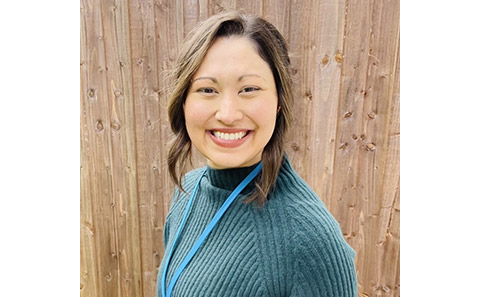 (AGENPARL) - Roma, 23 Giugno 2022
(AGENPARL) - Roma, 23 Giugno 2022(AGENPARL) – SOUTHAMPTON gio 23 giugno 2022

Developing new technologies to make nuclear power a sustainable energy solution
Sarah is developing a novel lab-on-chip sensor to detect difficult to measure radionuclides.
“The technology looks at how to improve environmental monitoring and process control in nuclear facilities, and the marine environment.”
“I’ve been developing a prototype to detect radionuclides that emit beta radiation.”
Sarah is based at the National Oceanography Centre and is in her final year of her PhD funded by Rolls-Royce. Sarah’s PhD is also part of the Next Generation Unmanned Systems Science (NEXUSS) Centre for Doctoral Training.
Dispelling the myth
Alongside her studies, Sarah is an advocate for encouraging girls and young women to succeed in engineering and applied sciences.
“One of the big things I’ve always noticed is that when I go to conferences, I wish I could see a greater presence of diverse women and role models.”
“Discouraged by teachers and doctors from pursuing any career due to extensive hospitalisations for a severe respiratory condition has driven my resolve to nurture future talents in STEM.”
Sarah has been mentoring sixth form students through the Arkwright Engineering Scholarships and the Social Mobility Foundation.
Sarah added: “It would be nice to see in five years’ time someone I mentored go into the same industry.”
Sparking the interest of future female engineers
Sarah works with under-served schools offering practical workshops about radiation to Year 9-11 girls.
She designed mock radioactive experiments to simulate how to detect and monitor radiation in the environment. Using principles learned in the workshop they are then able to design their own sensors.
“With some students you can see they’re already interested. There’s already like that spark there. So you kind of just have to fan the flames,” Sarah added.
“But I think it’s more satisfying when you see someone who’s not really thought about it before become interested.”

Creating and piloting an educational game during COVID
Sarah has a pre-existing condition and a history of treatment in ICU that made her clinically extremely vulnerable during the COVID-19 pandemic.
“I was advised to work from home for 3 months.”
During this time Sarah developed a card game.
“‘Rad Ratings’ highlights real-world applications of radiation in energy, pollution, health, as well as promoting STEM careers.”
In 2021 she obtained an RSC grant to pilot the project and gained funding from Transcend Consortium and NNUF EXACT to further develop the project and deliver it up to 500 students.
Returning to her research
After 15-months of isolation Sarah was able to return to the lab and continue her research.
“The challenges I’ve faced have solidified my resilience to not just overcome obstacles, but to become a future leader in my field whilst supporting young women in engineering and applied science.”
Sarah will receive her award at a ceremony in July at the Institution of Civil Engineers in London.
The list has been compiled by the Women’s Engineering Society and features the top 50 women working in the field of engineering.
The full list can be seen on The Guardian online.
Fonte/Source: https://www.southampton.ac.uk/home/news/2022/06/wed-sarah-lu-award.page

